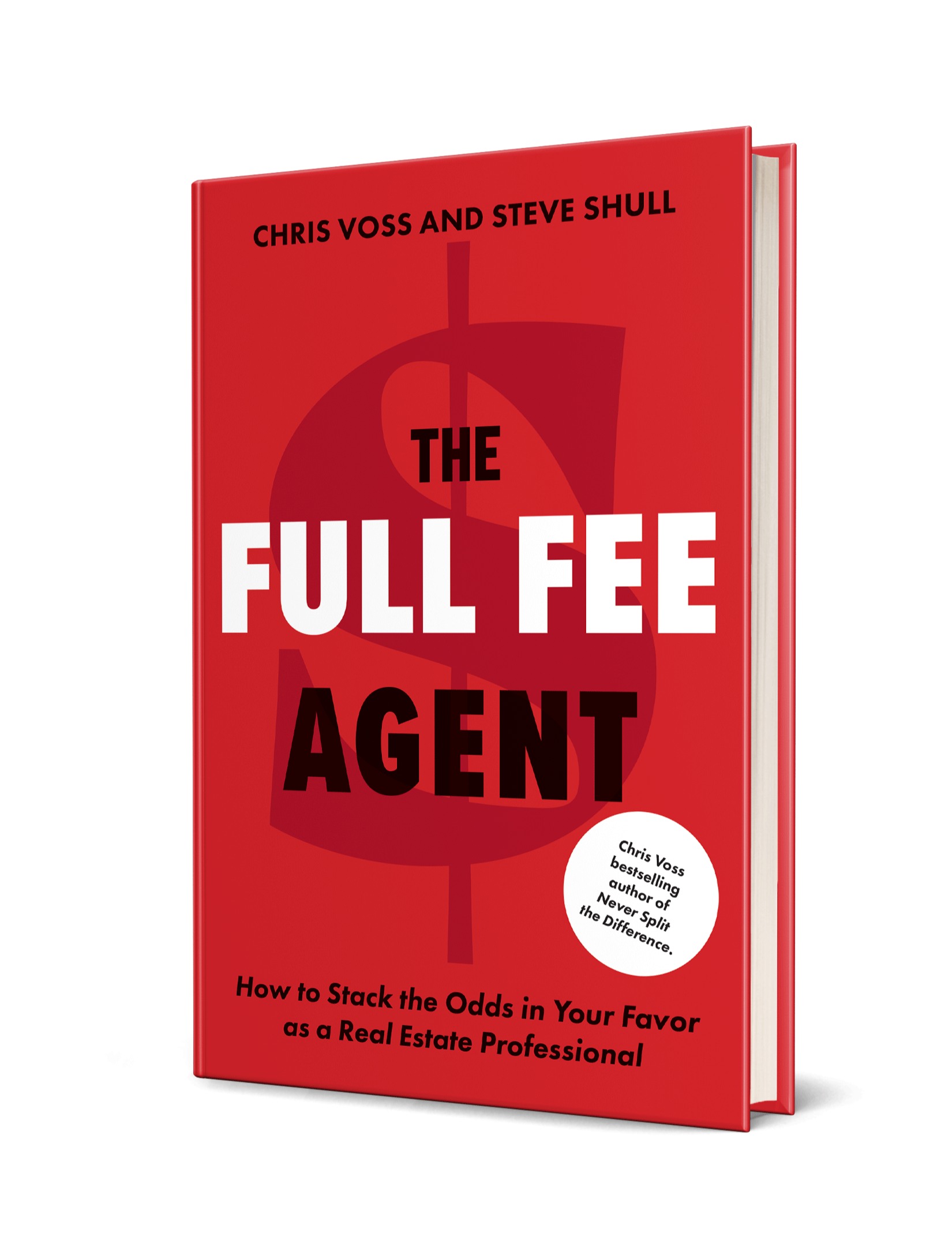Beyond Words: The Real Secret to Making Tactical Empathy Work
Feb 16, 2025
Have you ever found yourself preparing your response while your client is still talking, Caroline?
Or perhaps you've caught yourself thinking about what skill to use next, rather than truly hearing what your client is trying to tell you?You're not alone. As real estate agents, we're trained to be problem-solvers, explainers, advice-givers. Our instinct is to listen just long enough to identify an issue, then jump in with our expertise and solutions.
But here's the truth: The real power of Tactical Empathy comes from something deeper than just applying techniques.
It starts with emotional intelligence – our innate ability to understand and manage our own emotions while recognizing and influencing the emotions of others. This is the foundation everything else builds upon.
Think of it as a three-step progression:
First, there's the capability itself – your emotional intelligence, including that gut instinct that tells you what others might be thinking and feeling.
Then comes the active use of that capability through Empathetic Listening – truly seeing the world through your client's eyes and understanding their point of view at the deepest level.
Finally, there's the strategic deployment of that understanding through the skills of Tactical Empathy.
Skip any part of this progression, and you're working in the dark. Let's turn on the lights.
Empathetic Listening is about activating your emotional intelligence – putting that innate capability to work by seeing the world through your client's eyes and understanding their point of view at the deepest level. It means listening not just to their words, but to what lies beneath those words – their motivations, their worldview, their circumstances, and most importantly, what they're not saying.
Here's something crucial to understand: Words might be the least reliable form of communication.
Think about it. People, even when they desperately want to communicate their deepest feelings, often struggle to express themselves clearly. They may hide what they truly mean, whether out of fear, pride, or simple uncertainty. Their bodies and the tone of their voice will often tell us more than their words ever could.
That seller who says they're "fine" with reducing their price, but whose clenched jaw and tight shoulders tell a different story? Or the buyer who claims they're "not worried" about the inspection report, but whose voice quavers slightly? These are the signals that your emotional intelligence picks up and Empathetic Listening helps you understand – signals that mere words miss entirely.
Why does this matter so much?
Because Tactical Empathy – the strategic art of making people feel understood – depends entirely on actually understanding them first. You can't make someone feel understood if you don't truly understand them. And you can't understand them if you're not engaging your emotional intelligence through Empathetic Listening.
Think of it this way: The skills of Tactical Empathy – Labels, Mirrors, Calibrated Questions – are like precision instruments. But emotional intelligence is the raw material, and Empathetic Listening is the power source that makes them work. Without both, you're just going through the motions, using techniques without the deeper understanding that gives them their power.
Here's what this progression looks like in practice:
Your emotional intelligence tells you something isn't quite right with what you're hearing Your Empathetic Listening kicks in to help you understand exactly what's off:
- You're listening for their point of view, not waiting for your turn to speak
- You're paying attention to what they're not saying, as much as what they are
- You're noticing their tone, their body language, their energy
- You're picking up on the emotions beneath their words
- You're understanding their motivations and circumstances
- You're letting go of your own agenda and truly focusing on their perspective
- You're coming from a place of curiosity rather than fear
- Then your Tactical Empathy skills deploy that understanding effectively
When you follow this progression, something remarkable happens. The right Label naturally emerges because you've truly understood what needs to be labeled. The perfect Mirror presents itself because you've caught the significant words that need to be reflected back. The most effective Calibrated Question forms in your mind because you've grasped the underlying dynamics that need to be explored further.
But here's the challenge: This level of engagement is exhausting.
It requires intense focus and concentration. It means setting aside your own thoughts, fears, and agenda. It demands that you empty your bucket before every conversation so that you can be fully present with your client.
That's why many agents try to skip steps in this progression. They want to jump straight to using the tools of Tactical Empathy without engaging their emotional intelligence or doing the hard work of truly listening first.
Don't make this mistake.
Remember: Your client's words are just the tip of the iceberg. Beneath the surface lies a vast territory of thoughts, feelings, fears, and motivations. Your emotional intelligence is your radar detecting what's down there, Empathetic Listening is your diving equipment – allowing you to explore those depths and truly understand what's driving your client's behavior and decisions.
Without this progression, you're just skimming the surface, missing the rich information that could help you serve your clients better and build stronger, more trusting relationships.
So before you focus on perfecting your Labels or crafting the perfect Calibrated Question, start with the foundation. Trust your emotional intelligence. Master the art of Empathetic Listening. Then deploy your understanding through the skills of Tactical Empathy.
Turn on the lights. See what's really there. Listen not just with your ears, but with your eyes, your intuition, and your full attention.
That's when the real magic of Tactical Empathy begins.
Let this be your lightbulb moment!
Get free coaching in your inbox every week
Stay focused on what truly matters with key highlights and insights from all our coaching programs.


